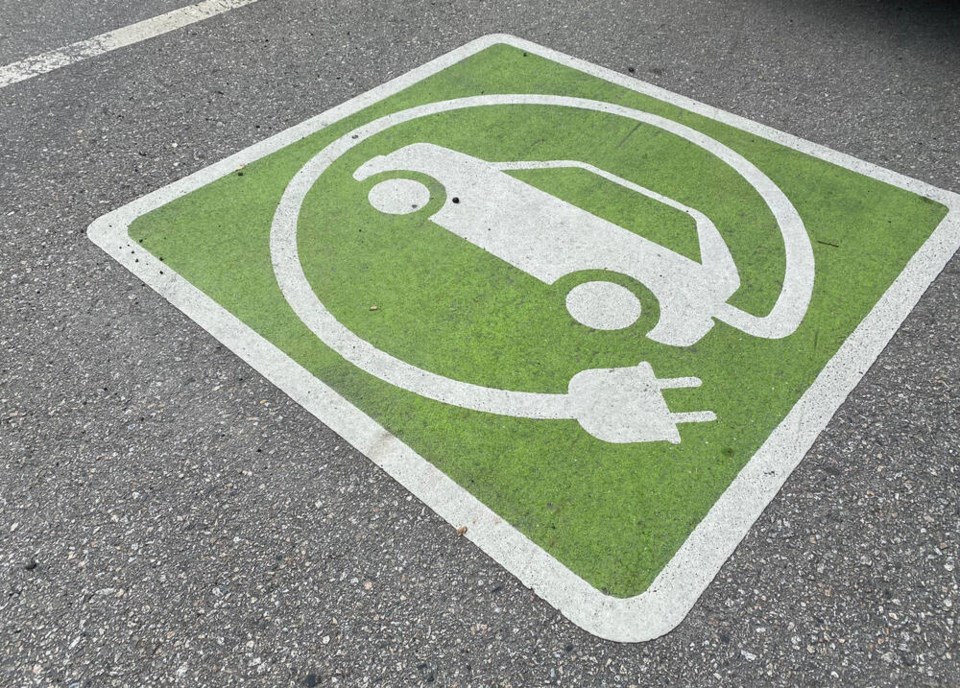British Columbia’s electric vehicle sales mandates were created with good intentions, but the collision with reality is now obvious.
Although we are still in 2025, the 26 per cent zero-emission vehicle sales mandate is already hitting our dealerships. That’s because it applies to the 2026 model year, and many of those models are starting to arrive across the province now.
While 26 percent sounds moderate compared to 90 per cent by 2030 or 100 per cent by 2035, as also required by B.C. law, the facts on the ground are grim.
According to S&P Global Mobility data, EV sales in B.C. have plummeted to around 15.4 per cent as of June 2025, down from nearly 25 per cent in mid-2024. This decline happened fast after both federal (up to $5,000) and provincial governments (up to $4,000 in B.C.) stopped funding their EV rebate programs earlier this year. So, the very incentives that made expensive electric vehicles accessible to middle-income buyers disappeared just when they were needed most.
Government polling shows 60 per cent of British Columbians say cost is their biggest barrier to buying electric vehicles. And yet, both levels of government pulled the financial support while maintaining the sales mandates, with penalties of up to $20,000 per non-compliant vehicle. This is not just bad policy, it’s economic punishment for our auto sector.
Flavio Volpe, president of the Automotive Parts Manufacturers’ Association, pointed out the severe consequences for automakers. Federally, failing to meet the EV sales targets could mean astronomical penalties. A company selling 300,000 vehicles a year that misses its target by 10 per cent could face a $600-million fine. These are not theoretical risks. They are real and could mean manufacturers reduce their Canadian presence, potentially costing thousands of auto jobs.
And powering an all-electric vehicle fleet is no small task. The Energy Futures Institute modelled B.C.’s electricity needs under the 2035 mandate scenario and found full implementation would require an extra two Site C dams’ worth of electricity. We’ve already been importing 20-25 percent of our electricity annually for the past few years, often from fossil fuels, which contradicts our clean energy goals.
Electric vehicles represent an important technological advance, but the path matters. With governments forcing unattainable mandates, they are creating resentment amongst potential buyers and a political backlash against EVs themselves.
Energy Futures recently learned that the B.C. government is undertaking a technical review of the Zero-Emission Vehicle Act, quietly acknowledging that sales targets are increasingly seen as next to impossible. Under consideration is a change to the targets themselves, along with adjustments to compliance ratios and eligibility rules for plug-in hybrids.
The market shift to regular hybrids, which you don’t plug in, is not supported by rebates. But the shift is happening nevertheless. However, these vehicles, such as the Toyota Prius, are not considered “clean” enough under B.C. legislation and could attract a penalty of $20,000 each.
This only makes things worse for consumers who are already stretched. Punitive mandates create market distortions, restrict consumer choice, and drive up vehicle prices for everyone, especially lower-income families who rely on affordable used cars.
Instead of accelerating into economically harmful mandates, both provincial and federal governments should recalibrate. Federal Environment Minister Julie Dabrusin’s statement earlier last month to renew consumer rebates is a good start, if the government is determined to interfere with the marketplace. But rebates alone won’t be enough. We need to slow down, invest in required charging infrastructure, and support market-based innovation, not forced adoption through penalties.
A sustainable energy future for B.C. and Canada requires smart, pragmatic policy, not economic coercion. Let’s take our foot off the gas and realign our policies with reality, protect jobs, consumer affordability and real environmental progress. Then we can have a successful transition to electric vehicles.
Barry Penner is chair of the Energy Futures Institute, former president of the Pacific Northwest Economic Region and former four-term BC Liberal MLA and cabinet minister.



